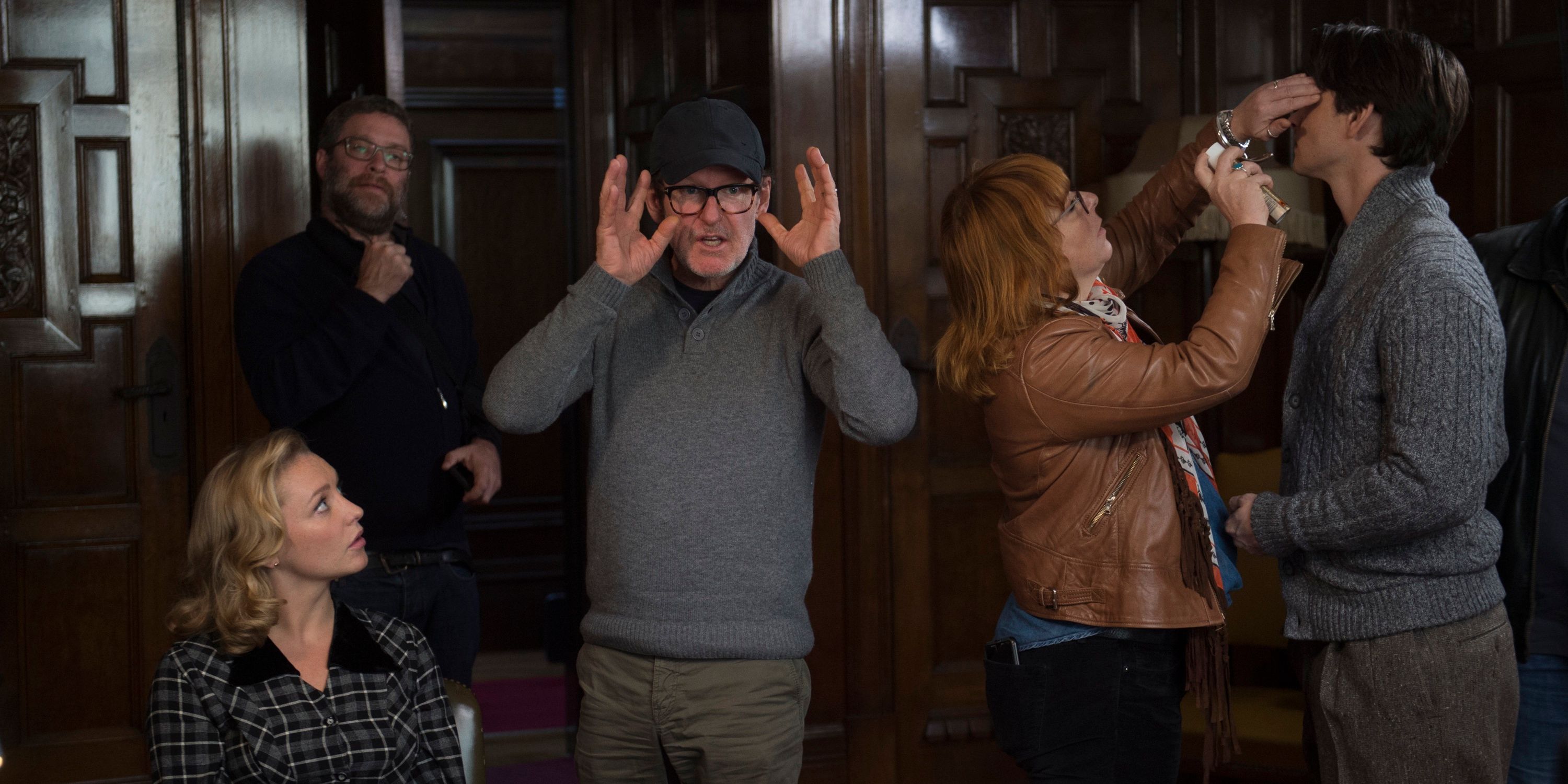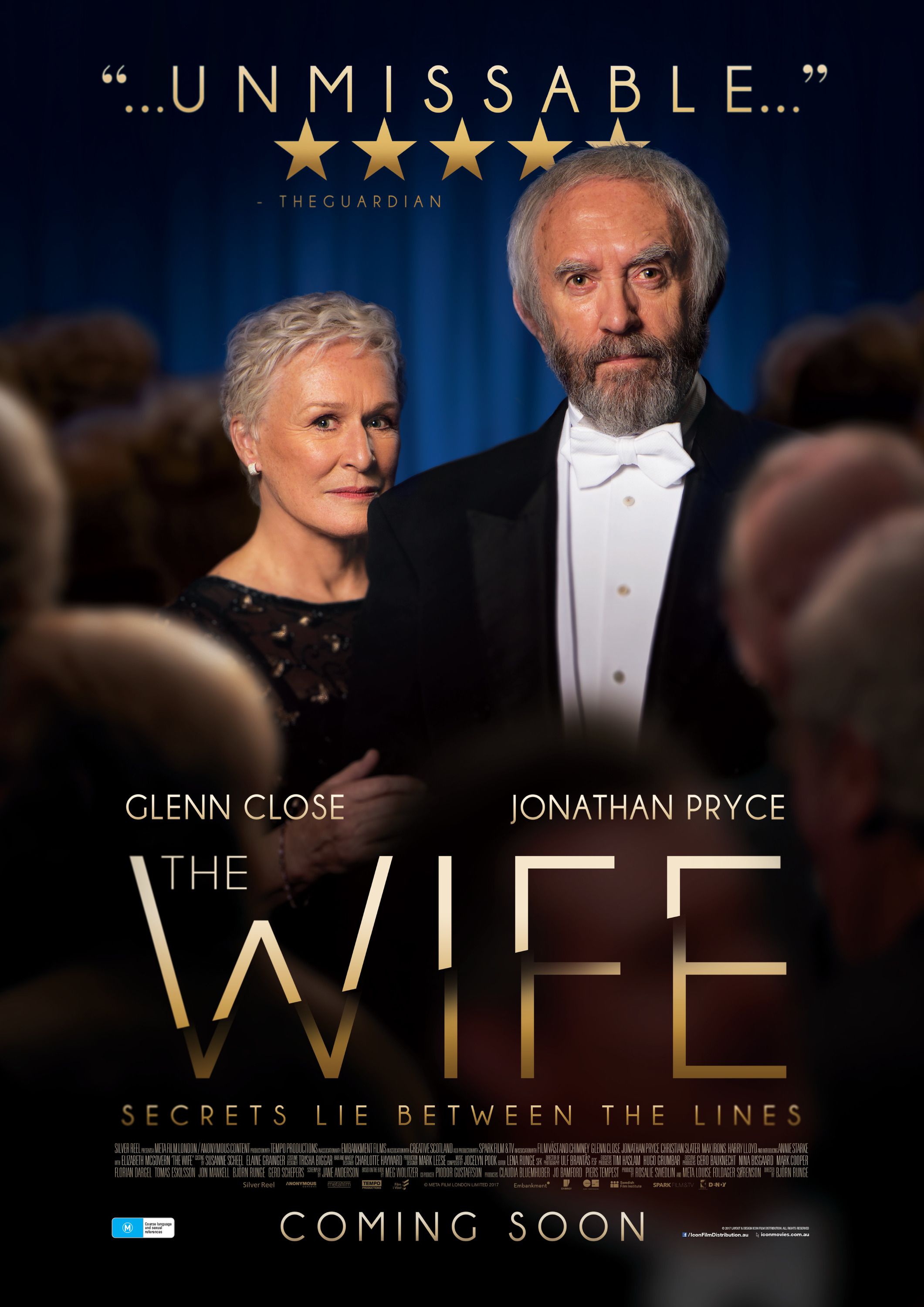Björn Runge is a Swedish director and author. In his newest film The Wife he teams up with acting stars Glenn Close, Jonathan Pryce, and Christian Slater. The film is based on the novel of the same name by Meg Wolitzer, with a screenplay written by Jane Anderson. It tells the story of Joan Castleman (Glenn Close) reflecting on her life during a trip to Stockholm. Her husband (Jonathan Pryce) is going to receive a Nobel Prize in Literature and the couple is travelling to Stockholm for the presentation. Joan’s younger self is portrayed by Annie Starke, Glenn Close’s daughter.
Screen Rant: How closely were you able to stick to the adaption of the novel?
Björn Runge: I read the novel after I read the script. Jane Anderson’s screenplay. So, for me, and we also rewrite Jane's script two, three times. But at that time, I had read the book. So, we could come back to some details and bring them back to the screenplay. But for me, the screen-script is very much a dramatical backbone from the book. The book is a, it's a long race, much more detail. But I think the adaption is very, very good.
Screen Rant: Right. And your performance was amazing. How did-- because your mother plays you at a later stage. But how did you-- or she give you any advice on how what her performance was going to be compared to yours. How was that worked out?
Annie Starke: Yeah, I mean, this character is incredibly deep and complex. So, it was hugely collaborative effort. We went in knowing exactly what we wanted to achieve. So, it was many hours sitting at a table discussing what makes Joan, Joan. So, we had our mission laid out.
Screen Rant: Speaking of collaboration, I know you have a lot of them stage background as well. Can you talk to me about that? Because I read about some of the rehearsals that took place. And how intense, or how much that, how those were in the shooting. And the flow of everything just seems so organic. So, can you talk to me about how the stage stuff kind of helped the film side?
Björn Runge: When you did the… I like to see… When we shoot the scenes, I like to do go from the top to the bottom of. Even if it's treated three pages. I tried to find a summary where we can shoot the whole scene from the beginning to the end over and over again. And that gives us deep energy into the acting. Because suddenly the scene can be four or five minutes. And if we do that over and over again, then things happens in the room. And the camera-- and we had two cameras that will work in constantly. So, you could-- it's something like we do with stage performers of those three pages. But at the same time, I know very much it’s about film. We're doing a film. So, I'm looking at those monitors, I see what's happening between the actors in the monitors. And then we can change things in the scene, the emotions in the scene. And suddenly maybe we're taking three full close-ups on Glenn and then we leave her and take close-ups on Jonathan, or Max Irons who plays the son David. And then suddenly I was feeling that something is in the acting. And then I go back to Glenn with a closeup. She’s on another way, another level in her acting.
Screen Rant: Well, Glenn complimented you on your usage of the close-up by the way. But I do want to ask you, so this movie touches on the complexities of marriage and also sexism in the workplace. What do you guys want audiences to take away from this film?
Björn Runge: For me it's about the truth. Truth is the key to healing. And even if it's very painful to find the truth is in your life. Is necessary if you going to have a good future. And here, this film is very much about a dark secret that has become a burden for the whole family.
Screen Rant: Right. How about yourself?
Annie Starke: Well, what's, absolutely I think that's the underlying theme and definitely kind of the main thing that you should take away from this. But what's also really interesting about this movie is there's a lot of mystery. There's a lot of, not necessarily tied ends. And I think there's a kind of a beauty in that. It gives the audience freedom of interpretation. You know what I mean? So, it's really interesting, going back and speaking to audiences. Because they always, they're taking everything, something different. And I think that's really cool and very unique. So, in that sense, you could kind of take away from it what you want. But I truly, I think it's, the underlying theme as Bjorn said, is truth, is so important. Especially just the release of secrets and burden. How truth will literally set you free.


